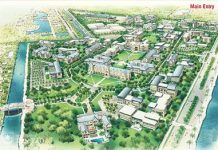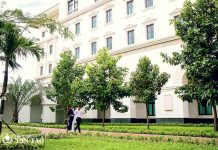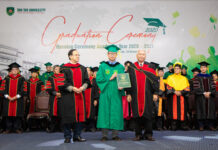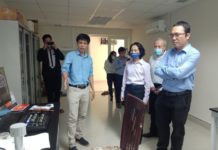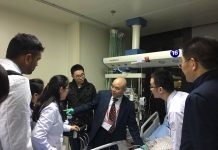Dated: Nov. 2017
Leader: Mdm. Hoang-Yen T. Dang
Analyst: Man H. Pham
Time conducted the survey by TTU: July 25, 2017 – October 10, 2017
Participants in the survey: 1000 people. The sample is scattered as follows:
- 100 high school pupils in rural area
- 100 high school pupils in urban area
- 50 high school pupils in Ha Noi (the capital of Vietnam)
- 100 students in public university in Ho Chi Minh city
- 100 students in private university in Ho Chi Minh city
- 150 students in public university in Ha Noi (the capital of Vietnam)
- 100 faculty in high school
- 100 faculty in university
- 100 parents in rural area
- 100 parents in urban area
Participants’ Information:
- Family Income
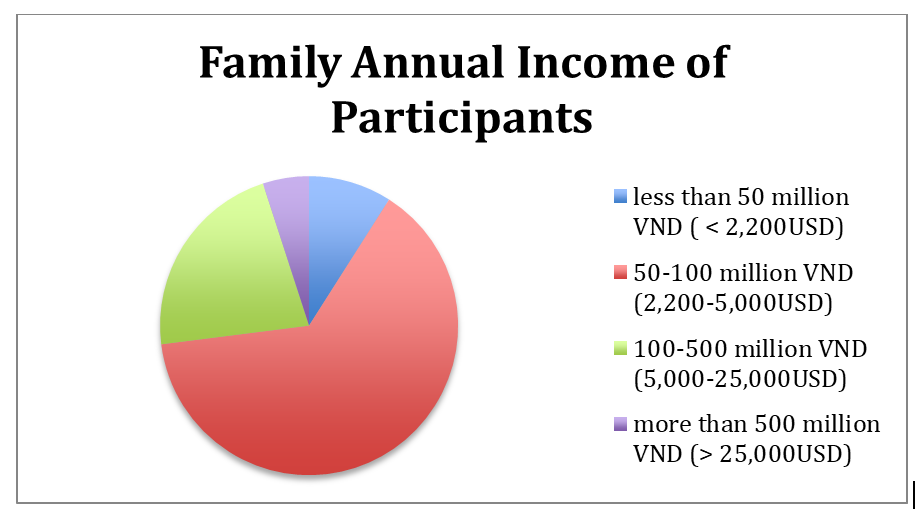
- Occupations of survey participants
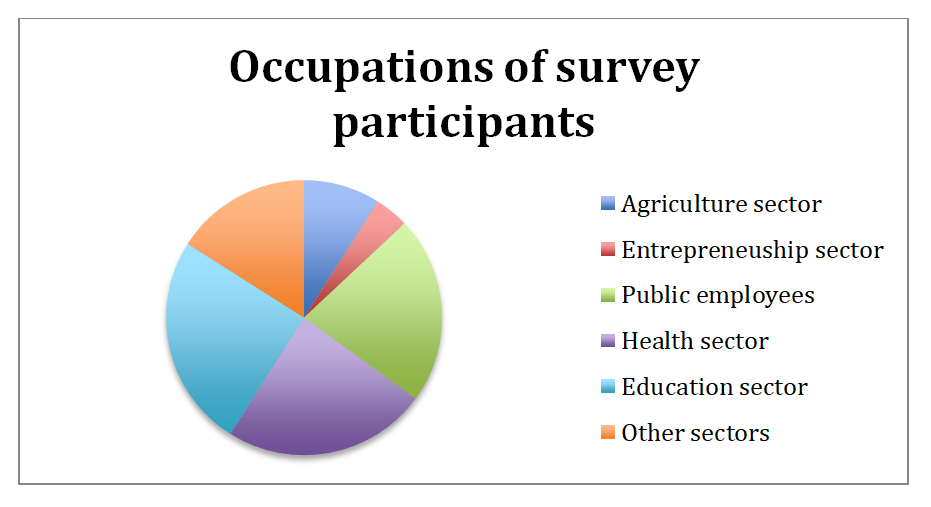
- Survey Area: Ho Chi Minh City, Long An Province, Tien Giang Province, Ben Tre Province.
- Schools participated in the survey:
Private Instituions: Tan Tao University, Van Hien University, Tan Tao Talented High school.
Public Institutions: University of Social Sciences and Humanities, University of Foreign Trade, Vinh Binh High school, Hung Vuong High school.
The survey includes 18 questions that are categorized into 6 objectives: purpose of higher education, contemporary trend in choosing Vietnamese university, contemporary trend in studying abroad, factors affecting students’ choice of university, perceptions of current education situation, expectations about an ideal education environment.
| Objective | Questions |
|---|---|
| Purpose of higher education | 1. What is your purpose in pursuing a university degree? |
| 2. What do your teachers and parents teach you about the purpose of higher education? (IF you are teachers/parents, what do you teach your students/children about the purpose of higher education?) | |
| Contemporary trend in choosing Vietnamese university | 3. What is your choice of higher education institution? (IF you are teachers/parents, what is your advice?) |
| 4. Why would you choose public university? (Why do you advise you students/children to choose publich university?) | |
| 5. Why would you choose private university? (Why do you advise you students/children to choose private university?) | |
| Contemporary trend in studying abroad | 6. Why would you choose to study abroad? (Why do you advise you students/children to choose to study abroad?) |
| 7. If you can study abroad, which country would you choose? | |
| 8. Why did you choose that country to study abroad? | |
| 9. What do you think of the statement: “Made in USA is synonymous with quality” | |
| Factors affecting students’ choice of university | 10. Which factors affect your choice of university? |
| Perceptions of current education situation | 11. How do you rate the quality of Vietnamese education? |
| 12. What are the drawbacks of Vietnamese education? | |
| 13. What is your opinion about bribery in education? | |
| 14. What makes the quality of Vietnamese education weak? | |
| The desire of students about the ideal educational environment | 15. What are the changes you wish to happen with Vietnamese education? |
| 16. What is your opinion about the roles of instructors | |
| 17. How do you evaluate about current students’ extracurricular activities? | |
| 18. What changes do you wish to happen with current students’ extracurricular activities? |
General analysis:
- Purpose of pursuing university education
Although 46% of students in urban area, and more than 80% of parents (both in rural and urband area) believe that the purpose of pursing higher education is to earn a degree, nearly 40% of university students disagree with that opinion. They believe that the main purpose of pursuing higher education is to improve skills and core competencies for future career. Seventy persent of high school teachers and university faculty say that the main goal of pursuing higher education is both to earn a degree and to increase the chance of finding a good job.
One interesting fact is that 100% of all pulpils and students in Ha Noi answered that they fully understood the purpose of pursuing university education. According to the survey, the main reason for pursuing higher education is to earn a degree (85%) This result also reflects a paradigm that earning a degree is crucial to the people in the capital, for they believe that a having degree equals high social status and a well-paid salary.
Another fact is that 100% of high school teachers and university faculty, 64% of parents in rural areas, and 87% of parents in urban areas said that they teach their students or children about the purpose of pursuing higher education. However, only 19% of high school students in rural areas, and 71% of students in urban areas responded that they were taught about the purpose of pursuing higher education. University students were not much different regarding attending public universities or private universities (45% or 36% correspondingly).
All 8% of high school students in rural areas and 5% of parents in rural areas who responded that they do not know the purpose of pursuing higher education have family backgrounds in the agriculture sector or other sectors (mostly freelancers).
Up to 4% of students in public universities and 1% of students in private universities said that they did not know the purpose of pursing higher education. The greatest drawback today is that, although high school instructors teach their students about the purpose of pursuing a higher education (e.g., sharpening skills, increasing the chance of having a well-paid job, or cultivating practical experience and knowledge), when these students finish their first semester at university, 5% of them begin to doubt the real purpose of pursing higher education. They claim that a big gap exists between what the schools say and what the schools really do. They advance their reasoning by saying that the number of unemployed fresh graduates has increased (in 2015, the number of unemployed university graduates was 150,000, in 2016 the number was 220,000, and in the first half of 2017, the number had increased to 44,000).
- Contemporary trends in choosing Vietnamese university
The preference for choosing public universities is a trend among high school students in rural areas (73%), university students in public university (89%), high school teachers (100%), and parents in rural area (87%). A remarkable figure is that no high school teachers and parents in rural area advise their students or children to choose private universities. The main reason that many people choose public universities is that these institutions are sponsored by the government and have low school fees. Especially, nearly 80% of parents in rural area believe that public universities have a high education quality, and that students who graduate from these institutions have high chances of finding jobs in public sectors. These parents have backgrounds from the agriculture sector, public service, or other sectors with an annual income of less than 100 million Vietnam dong (app. 5,000USD).
Another figure worth of note is that 64% of private university students, when asked why they chose private universities, replied that they choose private universities because they failed to pass the entrance exam into public universities. This figure reflects a paradigm among the Vietnamese: private universities that they are synonymous with low quality—schools for bad students.
In urban area, students and parents have a less conservative point of view: 29% of students and 18% of parents in urban area would choose private universities. They reason that private universities are better-equipped with modern facilities and have an English-speaking environment. These families belong to the entrepreneurial, health, or education sectors with annual incomes of 100-500 million Vietnam dong (app. 5,000-25,000USD).
However, people in the capital still are still conservative about the public and private universities. 98% of participants in Ha Noi choose public institutions while 0% choose private institutions. They choose public universities for three main reasons: (a) public universities are reliable because of government sponsorship (66%), (b) parents and teachers told their students to choose public universities (81%), and (c) public universities have a low tuition rate (17%). Thus, it can easily be inferred that a low tuition rate is not the main reason that the people in the capital to choose public universities. The underlying reason is the unequal treatment of the government between public and private universities. Although public universities are financially and administratively sponsored, private universities do not receive this endowment. For example, four scandals have been related to the administrative procedure in four universities: Foreign Trade University, University of Medicine and Pharmaceuticals, Hoa Sen University, and Tan Tao University. The public universities (Foreign Trade University, and University of Medicine and Pharmaceuticals) are sponsored by the government; therefore, the media are not allowed to broadcast the scandals in their newspapers. By contrast, the private universities (Hoa Sen University, and Tan Tao University) become prey to the press. The daily newspapers published these scandals, thereby, contributing to build a worse image of private universities. This discrimination by the government has created unequal competition between the public and private sectors.
Thirty-three percent of university faculties advise their students to choose public universities, while 26% advise them to choose private universities. The main reason that many people choose public universities is that these institutions have low school fees, high quality, and graduates who can easily apply to become civil servants. Their reasons are that private universities are better-equipped with modern facilities and have an English-speaking environment.
The preference between public and private university is not clear among university faculty. Although those who are currently working in public institutions tend to advise their students to choose a public university, private university faculty advise them to choose private schools. A further survey revealed that the 49% of lecturers who chose public university are more than 50 years old. They earned their higher education in the Union of Soviet Socialist Republics (USSR/Soviet Union). In contrast, the 81% of lecturers who preferred private university are between 27 and 49 years old, and have experience of studying or working in the United States, Singapore, Korea, Japan, France, Germany, Italia, Australia, and England.
There is a new trend: 10% high school students and 20% university students express their regret of pursing higher education, and choose to apply for a job when they finish their high school because they realize that Vietnamese higher education plays no role in guaranteeing a better career. These students (88%) have family incomes of less than 50 million Vietnam dong per year, and 12% continue to belong to the well-educated group, whose parents work in the education sector with annual incomes of 50-100 million Vietnam dong. These parents guide their children to choose “labour export” for three reasons: (a) gaining work experience, (b) learning one new foreign language, and (c) earning a substantial amount of money. They doubt the quality of Vietnamese education, but their financial status does not allow them to have their children pursue higher education abroad.
| Country | Percentage |
| USA | 91% |
| The United Kingdom | 84% |
| Finland | 62% |
| Singapore | 71% |
| Australia | 85% |
| Other | 22% (Japan, Korea, France) |
- Contemporary trend in studying abroad
Studying abroad is popular in urban areas, with over 50% of students, parents, and teachers. However, in rural areas, only 7% of high school students want to study abroad. They come from wealthy family with an annual income of 100 to 500 million Vietnam dong (app. 5,000-25,000USD) and are guided by their parents. The main reasons for this trend are (a) inscreasing their chances of finding well-paid jobs and (b) having residency in another country (the countries that are mentioned the most is the United States and Australia).
Ninety-one percent of participants choose the United States for their destination of studying abroad and 97% agreed with the statement that “Made in USA is synonymous with quality.” All 91% of the participants choose the United States as a destination for studying abroad because of its quality of higher education.
This figure reveals that the “American dream” idea is still popular among the Vietnamese, and that many Vietnamese want to live in the United States because of its prosperity, freedom, and public benefits.
Fifty-one percent of the participants choose the United Kingdom and Australia because they have relatives there. One hundred percent choose Finland because Findland has a low tuition fee and many financial aid programs for international students. 72% choose Singapore because they want to increase their core competencies in future career.
| Country | Percentage |
| USA | 91% |
| The United Kingdom | 84% |
| Finland | 62% |
| Singapore | 71% |
| Australia | 85% |
| Other | 22% (Japan, Korea, France) |
- Factors affecting students’ choice of university
The factors vary among different groups. Eighty percent of faculty and parents said that the parents chose the universities for their children.
Education quality and the rate of students finding good jobs after graduating were the two main factors affecting choice of university. Especially, the prejudice of “government-sponsored” was still popular among high school teachers (78%) and parents (79% in rural and 42% in urban), while this percentage was low among students (1% of students in urban area and 3% of university students in private institutions)
Nearly 10% of students and parents in rural area expressed their concern about facilities when applying to university because they believe that facilities do not affect the quality of education, and a low tuition fee is synonymous with ill-equipped facilities.
By contrast, students and parents in urban area and high school teachers and university faculty pay great attention to university facilities. They believe that modern facilities have a great impact on teaching and studying.
The factors that affect the students’ choice of university in Ha Noi were similar to trend in southern Vietnam. Thirty-five percent of all participants paid attention to whether the universities were sponsored by the government, 28% noted the years of establishment, and 17% noted the rate of graduates having well-paid jobs.
- Perceptions about current education situation
A stunning figure was that 0% of 800 participants responded that they believed that the quality of Vietnamese education is good.
More than 90% of the participants said that the quality of Vietnamese education is below average (bad and outdated) and needs a revolution. Only 10% of students and parents in rural areas said that the quality of Vietnamese education is acceptable, but only needs a slight change.
Many participants agree on the two biggest drawbacks of Vietnamese education: (a) the outdated and complicated procedure of admistration, and
(b) too many theoretical courses. Furthermore, the restriction in the number of matriculated students and the loosely regulated graduation requirements have led to 250,000 unemployed graduates.
Many factors are responsible for the low quality of Vietnamese education: (a) bad facilities, (b) a large number of students in a classroom,
(c) an abundance of theoretical Marx-Lenin philosophy courses, (d) the dictatorship of Moet, (e) a lack of well-qualified faculty, (f) a boom in fake certificates service, and (g) fast-changing regulations.
When asked about bribery, 80% of high school students and parents said that this is a bad deed and has negative effect on education. However, nearly 50% of university students, teachers, faculty, and parents in urban areas said that this is an essential act to achieve one’s goal. Nearly 58% of parents in urban area, 30% of high school teachers and university faculty, 20% of university students believe that bribery is obvious, everyone does it.
85% of all participants in Ha Noi agreed with the practice of bribery, and 12.5% said that this is a bad deed and has negative effect on education.
- Expectations about an ideal education environment
Almost (80%) participants wish to see positive changes in the quality of the education system, including the quality of faculty, more practical academic curriculum, and the cancellation of Marx-Lenin subjects.
Regarding the tuition fee, nearly 80% parents want a decrease in the tuition fee, while less than 20% of high school teachers and university faculty and students want a low tuition fee, for they believe that the tuition fee is positively correlated with quality for, as the saying goes, the “cheapest is dearest.”
More than 50% of the participant agreed that today students’ extracurricular activities are superficial and emphasize political propaganda. Nearly 30% said the quality of these activities is acceptable, but only needs slight changes. The remaining said that they do not pay attention to these activities.
Although 70% of parents, pulpils and students recommended that these activities should not be obligatory, only 20% of teachers and professors agreed with that suggestion. More than 80% of participants agree with three recommendations to change the current situation: (a) emphasize quality,
(b) encourage creativity, and (c) give freedom to students to organize their own activities.
- Conclusion and Recommendation
Conclusion 1: Regarding the purpose of pursuing a higher education, high school pulpils are taught carefully; however, when these students enter university, after one semester, they begin to doubt and worry about the true purpose of university. The current methodology in Vietnamese schools is for the teachers to read and the students to transcribe. Many university students are anxious when they see that too many new graduates become unemployed and have no practical skills, while the money, time, and effort that are spent in university are too high.
Vietnamese university requires the students to choose majors before they apply to university and, if they want to change majors during their studies, they have only one way to do it: to retake the university entrance examination and begin all over again. This is a great waste of money and time.
Recommendation: There should be job orientation sessions for freshman, and opportunities should be created for them to explore different majors during their first 2 years at university so that they will know for sure what they really like and who they really want to become before they must decide which concentrations they should follow. This is what the liberal arts model offers.
Conclusion 2: According to the result of participant’s preference in choosing university, it can be safely concluded that a prejudice exists against private university. This prejudice has its root in the history context: since the Independence Declaration in 1945, Northern Vietnam chose to develop a subsidized economy, and most sectors were sponsored by the government. Private business had almost no standing in the society. However, a good sign is that a paradigm shift has occurred among the participants whose family members are well-educated and have annual incomes of 100-500 million Vietnam dong (app. 5,000 – 25,000USD).
Public university attracts more students mainly because of its low tuition fees that could only be possible with government sponsorship. Whereas, private university does not have this favor. Thus, tuition at private university is higher than public university.
The government sponsorship for public schools has created unequal competition between two sectors, making public university pay more attention to recruiting a large number of students each year, instead of developing its academic excellence. As a consequence, hundreds of thousands of graduates from these institutions are unemployed.
Recommendation: There should be equal competition between public and private universities. Every school should be financially independent. This would lead to a focus on quality, encouraging every school to develop academic excellence to attract students.
Conclusion 3: That fact more than 50% of participants chose to study abroad and 90% of participants evaluated Vietnamese education as below average (bad and outdated) is alarming. This reflects the decreasing trust of the Vietnamese in their country’s education system. Especially, up to 74% of participants wished to study in the United States because they want to find an opportunity to settle in the United States. Once again, this figure alerts the decreasing trust of the Vietnamese to the low standard living in their own country.
Recommendation: There should be a revolution in education, including:
- Give freedom to university so that each university can freely develop its academic excellence
- Decrease or cancel the study of Marx-Lenin philosophy subjects
- Combine practical knowledge and skills in academic curricular to help students prepare for the fast-changing requirements of labour market
- Encourage creativity in students’ extra curricular activities, and give freedom to students to organize their actitivies and freely choose which one they would like to join. Do not use extra curricular activities as a tool to propaganda political goals.
- Increase the standard living of teachers so as to decrease tutoring classes and bribery.
- Simplify administrative procedure, combine high-tech in managing and solving administrative procedure for students.



